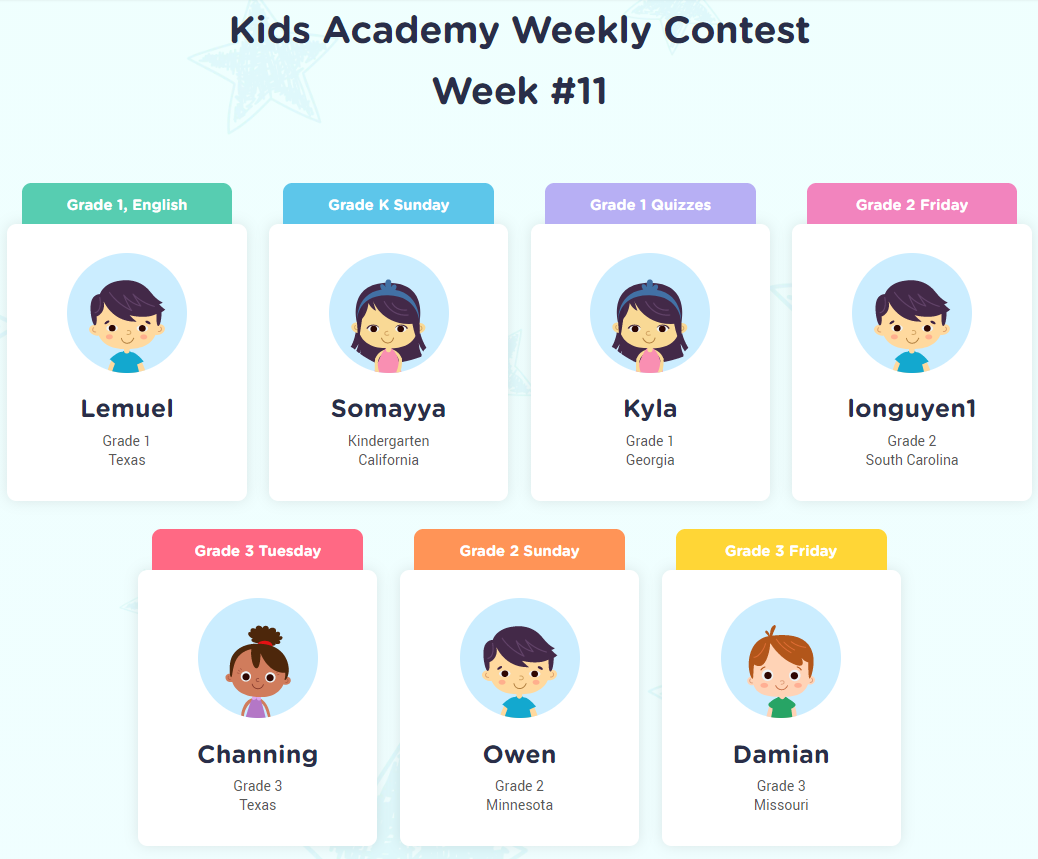Basic Addition Skills Easy Math Worksheets for Ages 3-6
6 filtered results
-
From - To
Welcome to our "Basic Addition Skills Easy Math Worksheets" designed specifically for children ages 3-6! These engaging worksheets are tailored to introduce young learners to fundamental addition concepts in a fun and interactive way. Each activity utilizes colorful visuals and relatable themes that captivate children's attention, helping them grasp essential math skills. With a variety of exercises to choose from, your child will enjoy hands-on practice that reinforces number recognition, counting, and basic addition. Ideal for home or classroom use, these worksheets nurture a love for learning while building confidence in math. Explore the joy of addition with us today!
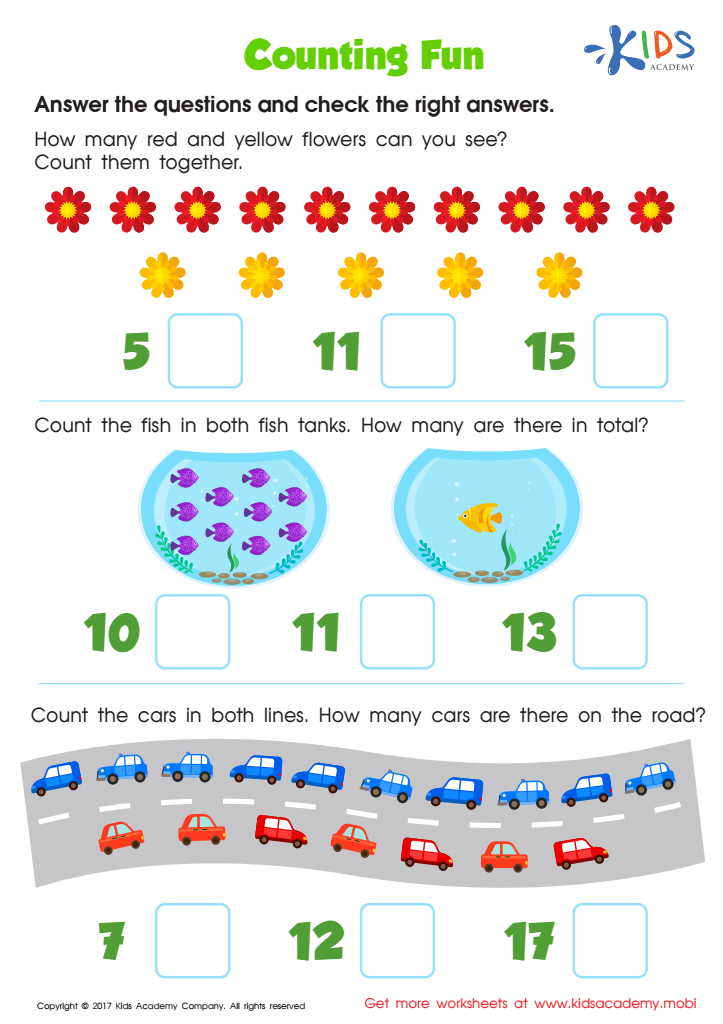

Counting Fun Worksheet
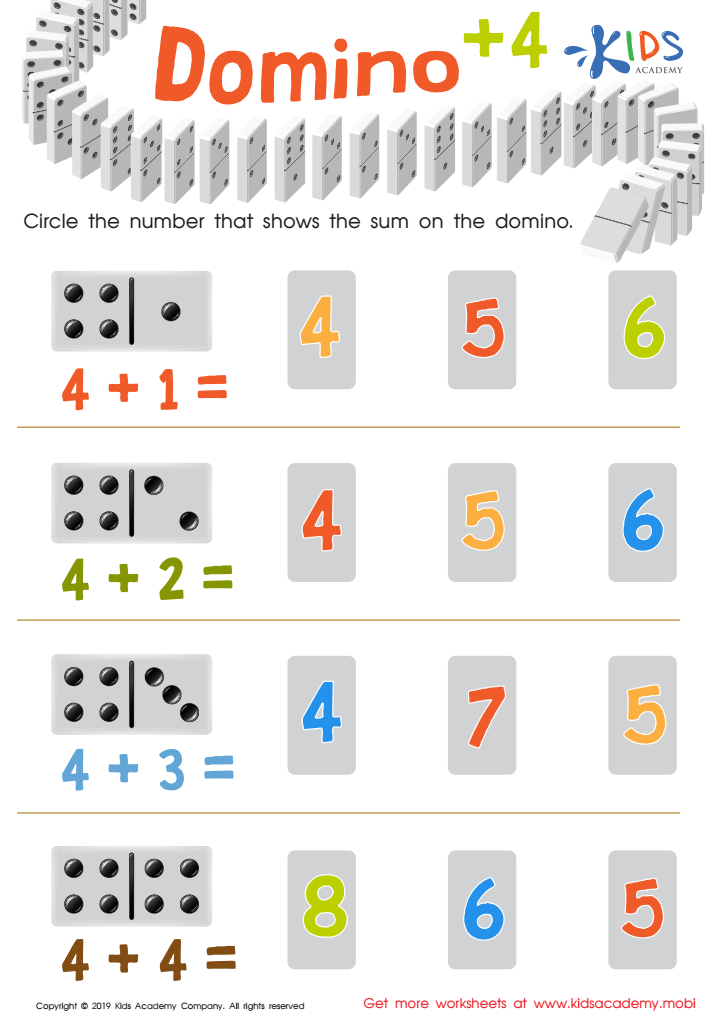

Domino +4 Worksheet
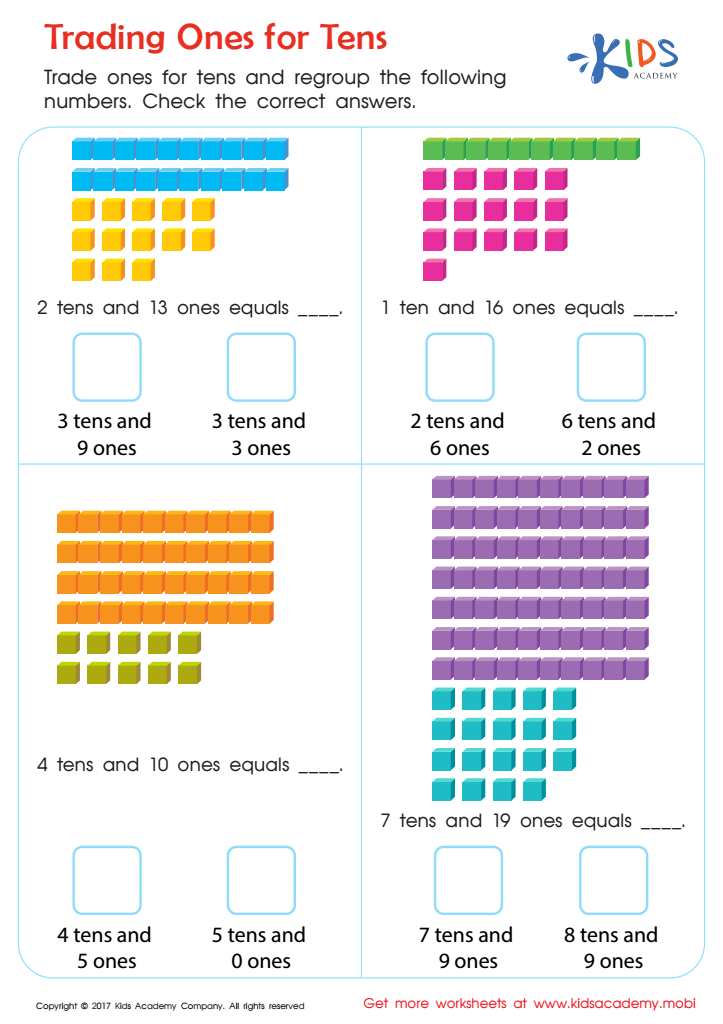

Trading Ones for Tens Worksheet
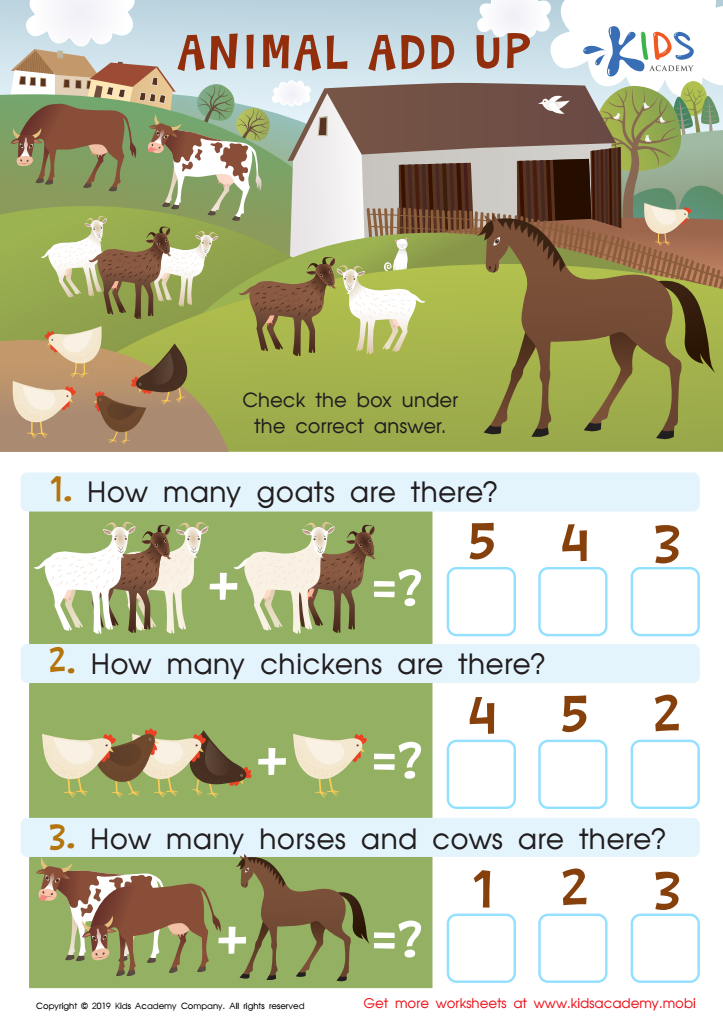

Animal Add Up Worksheet
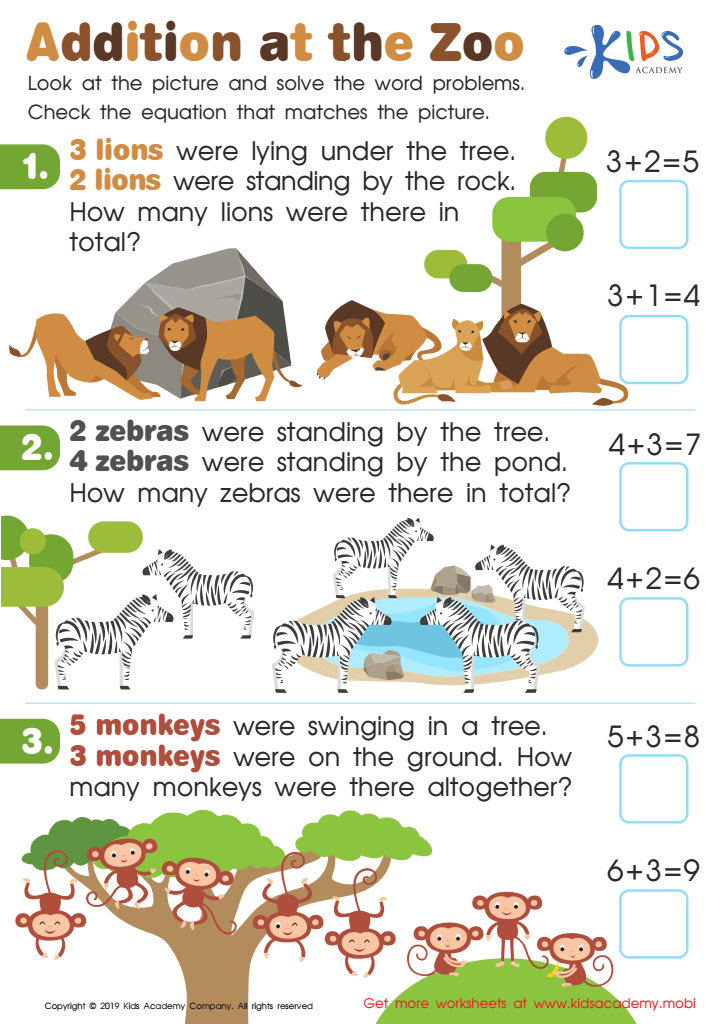

Addition at the Zoo Worksheet
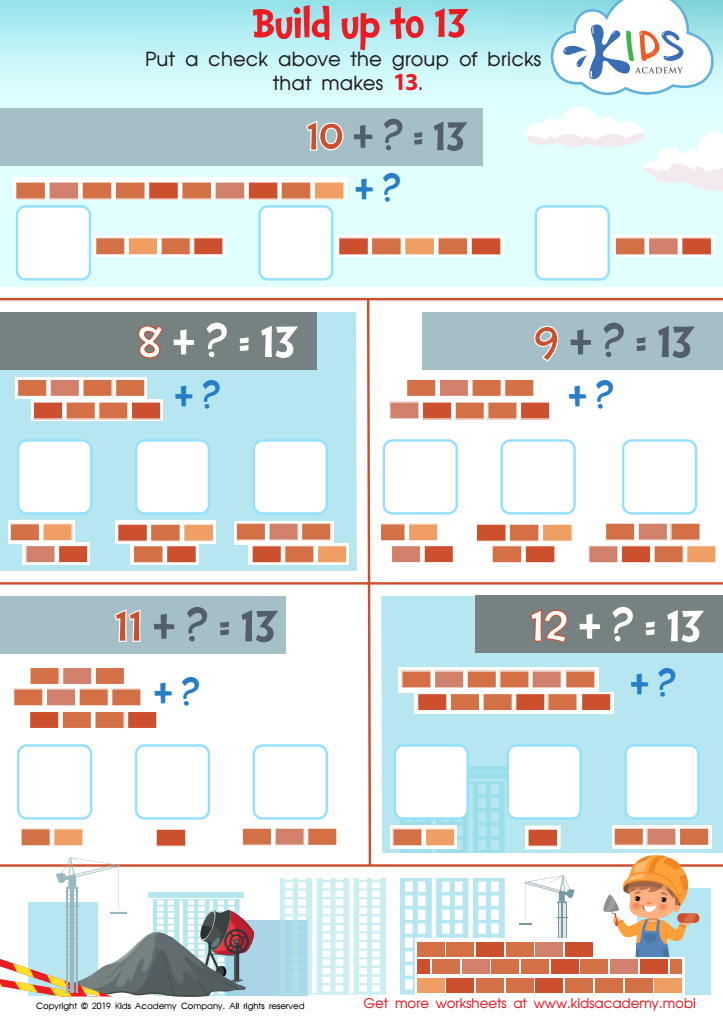

Build up to 13 Worksheet
Parents and teachers should prioritize basic addition skills for children aged 3-6 because these foundational mathematics abilities play a crucial role in cognitive development and future academic success. Understanding basic addition not only equips young learners with essential problem-solving tools, but it also cultivates logical thinking and reasoning skills that are vital across all subjects.
At such an early age, children are naturally curious and eager to explore numbers. Teaching them simple addition can enhance their number recognition, counting abilities, and overall mathematical literacy. Engaging in fun activities, such as counting objects, using visual aids, or interactive games, can make learning enjoyable and reinforce positive attitudes towards mathematics.
Moreover, acquiring basic addition skills boosts children's confidence, setting the stage for more complex math concepts in later years. When children feel competent in their abilities, they are more likely to take risks and participate in class, fostering a lifelong love for learning. Lastly, early exposure to math promotes collaboration among peers and strengthens communication skills, inspiring teamwork and shared problem-solving. Ultimately, focusing on basic addition empowers young learners, laying a strong foundation for their academic journeys ahead.
 Assign to My Students
Assign to My Students









